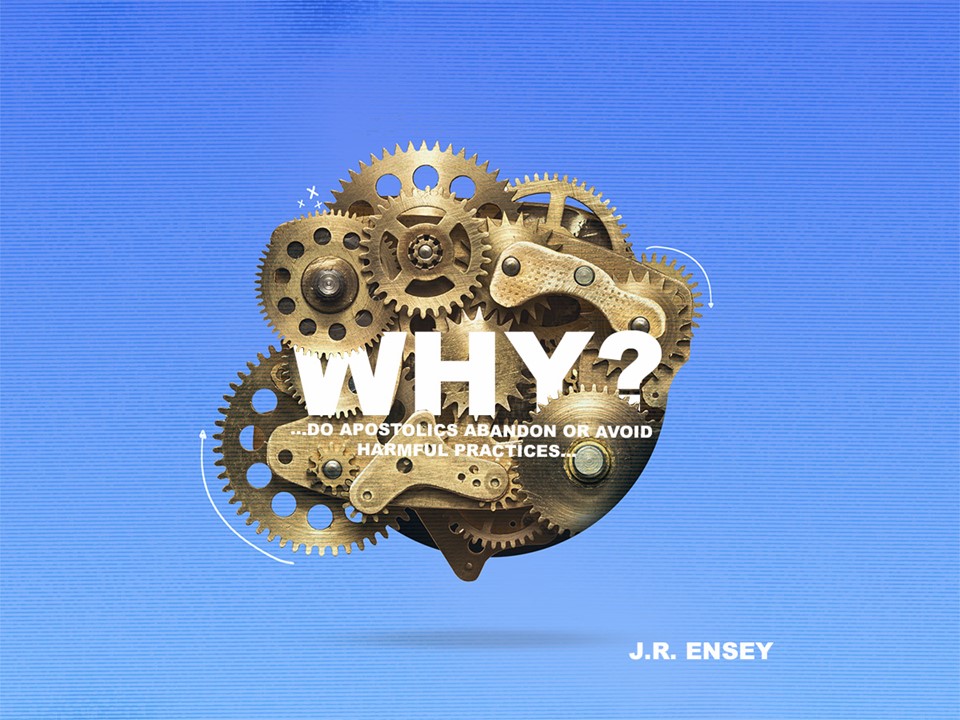
J.R. Ensey
To View the Entire Article, Click Here
To Download the Entire Article, Outline, or PowerPoint, Click Here
Holiness of life involves much more than outward deportment or external adorning. It starts within with the new birth, the coming of the Holy Spirit into one’s life. We are only holy because He who is truly holy lives within. Holiness is a work of the Spirit in our lives; separation is our response to the Spirit’s call to a godly lifestyle.
In this series, we are dealing with a number of issues that reflect our commitment to Christian living. Some of them concern our apparel, others our entertainment tastes, and still others our doctrinal beliefs. This chapter will examine the biblical teaching on particular personal habits or practices that are harmful to us, either spiritually or physically. Our bodies are the temple of the Holy Spirit: “What? Know ye not that your body is the temple of the Holy Ghost which is in you, which ye have of God, and ye are not your own?” (I Corinthians 6:19). That declaration will be a starting point for our discussion.
It is quite unnerving to read the sobering statement of the apostle Paul in I Corinthians 3:17: “If any man defile the temple of God, him shall God destroy; for the temple of God is holy, which temple ye are.” The words “defile” and “destroy” are translated from the same Greek word. We are to be caretakers of the physical temple of the Lord. If we mistreat it and abuse it, and destroy it in the process, there will be a penalty to pay. In this chapter, we will discuss some of the destructive practices that Apostolic’s abandon or avoid in order to protect their temple and their testimony.
When one comes to God in repentance the first things that come to mind to confess and seek forgiveness for often include activities involving alcohol, drugs, or abuse of some kind. When he knows he is accepted and forgiven, he will begin to align his life with biblical teaching and excise practices that are opposed to his spiritual life. Those who have been reared in a Christian atmosphere should know to avoid entrapment by these activities.
Alcohol consumption
The Scriptures do not diffuse the destructive power of alcohol. From the first mention of a drink that warps the mind and evokes unnatural emotions and behavior, it becomes obvious that it is not for men of high moral and ethical character. Noah was barely out of the ark when he planted a vineyard and “began to be an husbandman” (Genesis 9:20). After the first harvest he decided to make wine, and when it was fermented, he “drank of it and was drunken; and he was uncovered in his tent” (v. 21). Hardly had he debarked from the vessel that saved his family and the animals from the flood when he was felled by strong drink.
The resultant obscenity brought about the first judgment reckoned upon the human family after the deluge. Other examples include Lot’s drunkenness that resulted in an incestuous relationship with his two daughters (Gen. 19:30-38) and an inebriated Xerxes who sought to humiliate Queen Vashti publicly (Esther 1:9-22). The consumption of alcohol impairs judgment, inflames passions, and invites violence (Leviticusl0:8-11; Proverbs 20:l, 23:29-35, 31:4,5).
Alcohol and the depression often associated with it lead to a breakdown of moral inhibitions, indiscreet or violent behavior, or loss of consciousness (drunkenness). Long-term drinking can terminally damage liver, pancreas, brain, or heart. Binge drinking on university campuses has caused instant death. It is estimated there are 14 million problem drinkers in the United States. Alcohol-impaired drivers cause half of all fatal automobile accidents. The annual cost of alcohol-related accidents, illness, violent crime, and loss of work time is estimated to exceed 100 billion dollars.
To View the Entire Article, Click Here
To Download the Entire Article, Outline, or PowerPoint, Click Here



